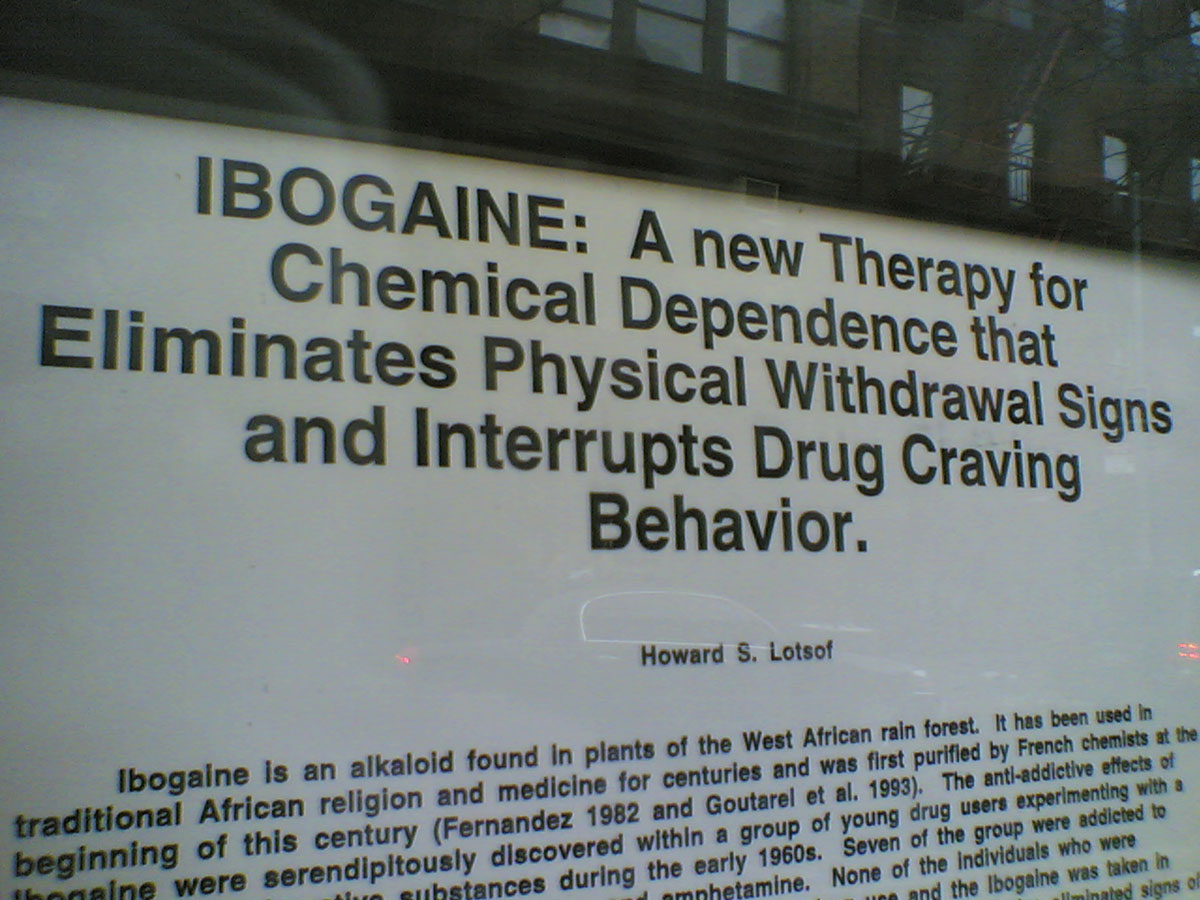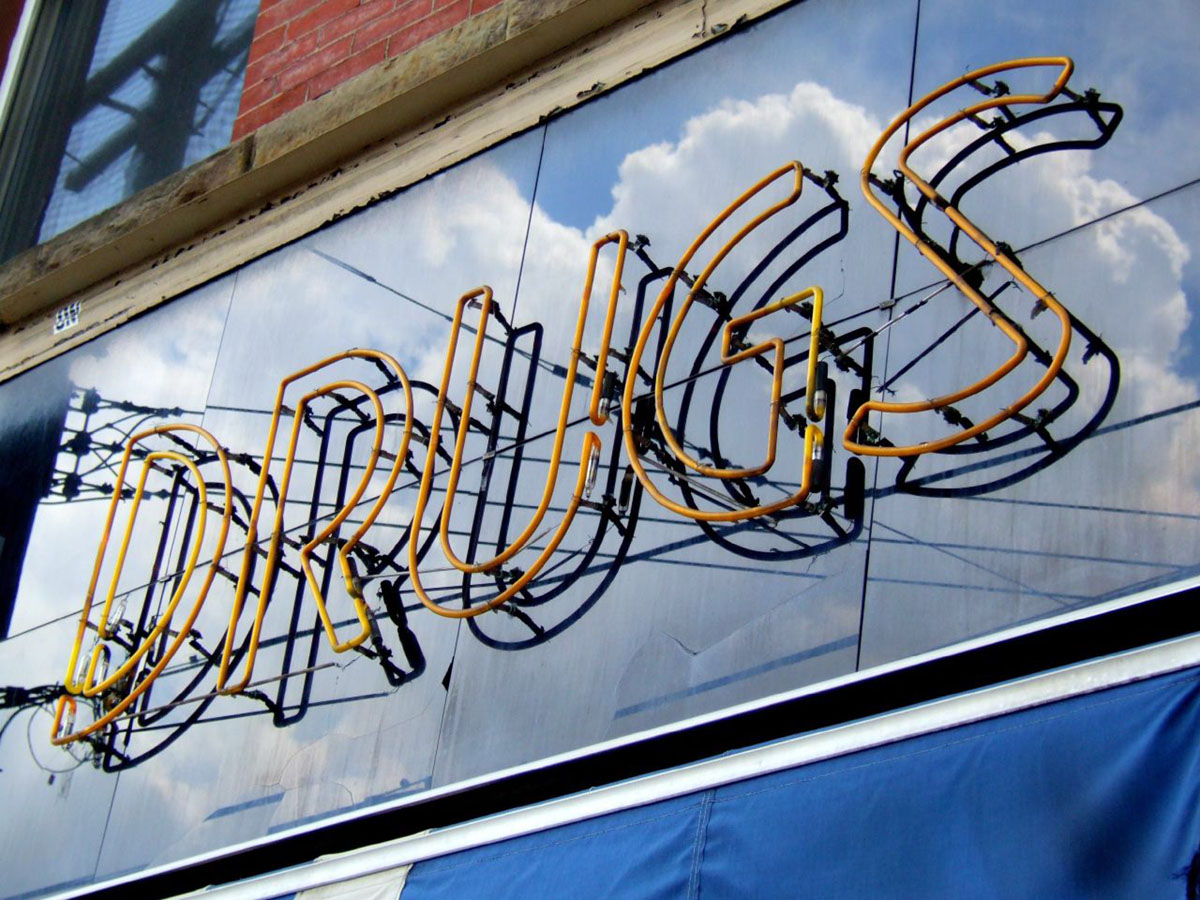Ibogaine has been described as an effective cure for addictions to heroin, morphine, methamphetamine, alcohol, tobacco, and even prescription drugs. While some see Ibogaine as a magical cure, media attention has focused on the deaths caused by its usage. Ibogaine and its use have been banned in many countries around the world. So…what is all the fuss really about? Is Ibogaine a safe and effective anti-addiction measure, or something that will kill you?

What Is Ibogaine?
Ibogaine, derived from the African Iboga plant, has naturally-occurring psychoactive properties. For centuries it has been used by many African tribes — particularly the Bwiti tribe and the Pygmy communities — for both ritual and medicinal purposes. Though some say it's a recent discovery in the Western world, Ibogaine was originally discovered as having properties of curing addition back in 1962. At least a century before that, it was marketed in France as a stimulant.
How Does It Work?
Proponents believe Ibogaine helps to cure drug addiction because it stops any withdrawal symptoms straight away and it reduces the body’s cravings for narcotics. Also, during treatment, it seems to give the patient better insight and understanding about their reasons for relying on drugs.
This is all experienced during a hallucinogenic episode, which can last a number of days. For some patients, just one dose of Ibogaine is all that is required to get the desired result, others may need up to three doses. Although many countries are concerned about the possibility of Ibogaine becoming a drug of abuse, most people who have taken the drug do not find the experience at all pleasurable. There are three stages of the hallucinogenic treatment by Ibogaine.
First Stage – Dreamlike
Those who suffer from drug addiction are more likely to experience withdrawal symptoms first thing in the morning, so treatment is normally given then. Withdrawal symptoms usually disappear within an hour or so of taking the drug, so it is fast-acting. This is also referred to as the acute phase, and motion can induce vomiting, so the patient will normally try and lay still as much as possible. The acute stage can last anywhere from four to eight hours, and the patient should have someone with them at all times. Up to three quarters of patients will experience very vivid dreams, or hallucinations during this time. This is a very intense experience, but when the eyes are opened, the hallucinations disappear.
Second Stage – Evaluation
Following the dreamlike stage, the patient will begin a period of between eight and 20 hours during which time they will become evaluative. This is often when the patient thinks about what occurred during the acute stage, and those thoughts and experiences lead to introspection. Often this will enlighten the patient about why they made the choices they did in the past, or why they undertook certain actions. It is this stage that is said to have the biggest impact on ridding the patient of their addiction.
READ My Child is a Crystal Meth Addict - How do I Help?
Third Stage – Stimulation
This particular phase can last up to 72 hours or even more. The majority of patients find this the unpleasant phase, as their body is exhausted but they are unable to sleep. Many patients need sleeping medication to try and help them rest, but the mind is so stimulated, it can be very difficult to initiate sleep. This inability to sleep can last for weeks or months, with many only getting as little as two hours of sleep per night.
Ibogaine's Adverse Effects
Apart from the inability to sleep, there are a number of adverse effects associated with taking Ibogaine. Often the first symptom experienced is nausea and vomiting, and this can continue for a number of hours. This can take a large toll on the body and lead to dehydration if not carefully monitored. The second effect most commonly experienced is called ataxia, where muscle coordination is affected, which makes it very difficult to walk or even stand unassisted.

Because Ibogaine is illegal in so many countries including the US, it is difficult to get clear reports on the effects of taking Ibogaine. Unfortunately, what is generally reported are the associated deaths. This has previously been estimated at 1 in 300, but the figures are not accurate due to the underground nature of many of the Ibogaine clinics. However, studies have been done using animals to determine what adverse effects can occur.
Medical Contraindications
If you suffer from pre-existing medical conditions, extreme caution should be taken before undergoing Ibogaine treatment due to the severe physical effect of this type of therapy. These conditions include, but are not limited to:
- Cardiac problems or disease
- Epilepsy
- Neurological disorders
- High blood pressure
- Crohn’s Disease
- Kidney disease
- Liver failure
- Unstable diabetes
- Psychiatric disorders
- Pregnancy
Any clinic that is offering Ibogaine treatment should have the medical equipment to deal with an emergency if it should arise. As well as monitoring the patient visually, they should also have the following at hand:
- First Aid kit
- Blood pressure monitor
- Oxygen monitoring equipment
- Cardiac monitoring equipment
- Portable defribillator
- Oxygen supply
The Legal Side Of Ibogaine
In the US it is illegal possess Ibogaine or to sell it. The same applies to Switzerland, Denmark, Belgium and Sweden. Countries that allow Ibogaine clinics to operate include Canada, Mexico, the Caribbean, some countries in Europe, and across South and Central America. If a clinic or provider is offering Ibogaine treatment within the US, it is completely illegal.
READ What Does Cannabis Really Do To Your Appetite?
To Take Or Not To Take?
If you are suffering from an addiction to drugs or alcohol, there are many other treatment options that are safer, and regulated by an authority. If however you wish to try Ibogaine, the choice is yours, but depending on where you live, you may be restricted. One thing to consider is that you may be better to travel to another country where the clinics are operating legally rather than risking your life with an underground clinic that may not have the knowledge, training and experience to keep you safe.
- Photo courtesy of fekaylius via Flickr: www.flickr.com/photos/hive/398408129
- Photo courtesy of fekaylius via Flickr: www.flickr.com/photos/hive/398408129
- Photo courtesy of mknobil via Flickr: www.flickr.com/photos/knobil/146907208


Your thoughts on this